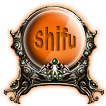By continuing you agree to eChinacities's Privacy Policy .
 Sign up with Google
Sign up with Google
 Sign up with Facebook
Sign up with Facebook
Q: What does 'shanghuo' 上火 mean?
Do we have an equivalent of that?
13 years 16 weeks ago in Health & Safety - China
It literally means "rising fire", it is applied to things you eat or drink that will create internal heat in your body. In traditional Chinese food therapy, vitamins and nutrients are not considered, foods are categorized by the 5 thermal temperature (hot, warm, neutral, cool and cold) and the 5 flavors.(bitter, sweet, spicy, salty and sour).
Mr Williams has provided a good answer.
However, for more information on 'shang huo', how to combat it, and other mysterious food phenomena in China, there's an article here
There is no foreign equivalent to the "rising fire" hokum of food, simply because in the West the idea that some foods were "hot" or "cold" in the body was abandoned after the Middle Ages when some new thing called "medical science" was discovered.
Amazingly, human body temp (barring illness) is 98.6 degrees fahrenheit or 37.0 degrees celsius. If you eat lamb ("hot" food) your body temperature is: 98.6 degrees fahrenheit or 37.0 degrees celsius. If you eat Hami Watermelon ("cold" food) you body temperature is: 98.6 degrees fahrenheit or 37.0 degrees celsius.
All food has calories which your body uses as fuel; your body is not concerned about an ancient magic concept based on your stomach being made of wood elements. You don't get cold sores from eating hot pot, you get cold sores from the herpes simplex virus. Maybe if you share hotpot with someone who has HSV-1, but that's a different story.
I have no idea why people want to believe in the magic hokum that is Chinese medicine. In 1950, the average lifespan in China was 32, then up to 69 by 1985. This was due to introductions of western medicine, better sanitation, etc. Not because of eating "hot" and "cold" foods or drinking magic tea.














